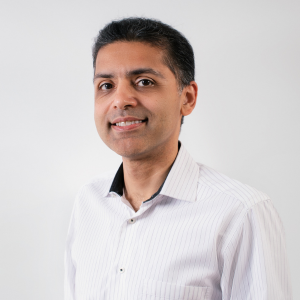
Riad’s diverse career has included his academic tenure at LSE where he completed his PhD, followed by governmental work in Egypt culminating in him pursuing an entrepreneurial endeavour as the Founder and CEO of Second Strand Solutions Ltd. This has equipped him with the ability to tackle risk and compliance challenges with both a pragmatic and research-conscious perspective.Tell us about your career journey after graduating.
Current job title and brief description of what this role entails:
I am the Founder and CEO of Second Strand Solutions Ltd. We’re a fintech organisation specialising in helping companies to meet their regulatory compliance requirements, through technical solutions. In practice, this means overseeing the people involved in the development of our platform and working with the wider team on bringing our products and services to customers.
As a triple LSE alum could you explain your decision around completing a BSc, MSc, PhD and then teaching at LSE?
Originally, I had only intended to finish my BSc and then enter the workplace, I had a career path planned (traditional financial services) and I was aiming towards that. After my second year I deferred a year and took a job to help me get a taste of the real world. I quickly discovered that while I had a good grasp of the key principles and ideas, I was a generalist. I then returned to the LSE and decided to pursue a MSc to deepen my understanding in what I saw was a big growth area, namely information systems.
During the MSc I got to know people in the department quite well and discovered I really enjoyed the material, as well as the team. I was also fascinated with some of the theories being discussed and decided to carry on, leading to my PhD.
The teaching came about as part of my desire to better understand the material I was reading funnily enough. Going back to basics, looking at things from the point of view of new students really helped bring the material to life.
Can you provide a short summary of your PhD thesis and how it shaped the direction of your career?
The core of my PhD was to find a way to effectively embed the implementation of risk management frameworks, policies and procedures. Many firms were creating dry legalistic documents that fulfilled regulatory requirements; however, they weren’t being used, they were being shoved into drawers and left alone. Therefore, my PhD developed a model based on iterative feedback that revised the framework and documents over time to ensure they were used and embedded.
Since the completion of my PhD, I have used the core principles and ideas throughout my career.
Tell us about your career journey since graduating from LSE.
After leaving LSE I worked for a banking firm in Canary Wharf for a few years, before being headhunted to be the Head of Risk for the Central Bank of Egypt. I later returned to the UK and took several financial services, corporate risk management and compliance roles at a range of financial institutions and corporates. During the pandemic I decided to open my own fintech, and that’s my journey to date.
What has been the biggest challenge you have faced in your career, and what have you learned from it?
It was during my time as Head of Risk for the Central Bank of Egypt, where the biggest challenge was the shift in culture and attitudes to risk management, all whilst going through the financial crisis at the same time. Years later I can still remember the late nights…
Share your fondest memory of the Department of Management.
There are so many to choose from. One of my fondest memories was waiting for a long time outside of Professor Ian Angell’s office to speak to him about some work and instead having long conversations about his cat, Oscar. Professor Angell would use these conversations to guide me into thinking for myself, and I believe that those conversations helped me both in my personal and professional growth over the years.
If you would like to be profiled or if you would like to nominate a Department of Management alumni, please email dom.alumni@lse.ac.uk.